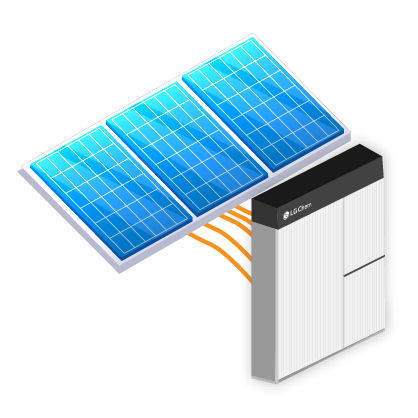Hyundai Solar: The Complete Review
Hyundai Solar began in 2005 by Hyundai Heavy Industries (HHI), a popular player in the heavy industries sector, with production centers in Eumseong, Korea.
As the world’s leading shipbuilding corporation, Hyundai is also the largest solar cell and panel manufacturer in South Korea and has a solar cell production capacity of 600MW per year.
Hyundai is considered as an economical option to homeowners looking for a low-cost solar installation. They provide high-quality PV products to more than 3,000 customers worldwide.
Hyundai Solar Panels Applications
Hyundai’s solar modules/panels can be used in all kinds of solar projects like
- Residential homes
- Commercial offices
- Utility scale solar farms
- Floating solar projects
Hyundai’s Solar Panel Features
- PERL Technology: Hyundai’s panels are made up of the passivated emitter, rear locally-diffused (PERL) solar cells that are highly efficient. PERL cells can improve energy conversion efficiencies of silicon solar cells up to 24.0% under the standard global solar spectrum and up to 46.3% under monochromatic light. PERL technology provides better performance in low irradiation scenarios and maximizes installation capacity in limited space.
- Anti-LID / PID:
- Light-Induced Degradation (LID) is a loss in cell efficiency arising in the very first hours of exposition to the sun, with Crystalline modules.
- Potential Induced Degradation (PID) occurs over a certain period after the installation as the modules are in strings operating at high voltages, combined with very warm and humid weather. Dust and glass degradation (releasing Sodium ions) may catalyze the PID phenomenon.
- Both LID and PID are strictly eliminated in Hyundai cells to ensure higher yield throughout its lifetime.
- Mechanical Strength: Hyundai’s tempered glass and reinforced frame design can withstand rigorous weather conditions such as heavy snow and strong wind.
- Reliable Warranty: As a global brand with powerful financial strength, Hyundai provides solid bankability and a good pair of warranties for its solar products.
- 12-year product warranty on materials and workmanship.
- In addition, Hyundai modules have a 30-year performance warranty with 97.6% in the initial year and a linear warranty after the second year (0.6% annual degradation, 80.2% is guaranteed up to 30 years).
- Corrosion Resistant: Hyundai’s panels are tested under harsh environmental conditions such as ammonia and salt-mist and proved to highly resistant
What Are the Different Hyundai Solar Modules?
Currently, the following five series of Hyundai panels are available in the market:
-
RG Series
- RG Black Series
- RI Series
- KI Series
- WI AquaMax Series

Hyundai Solar Panels Options
Let’s look at a detailed description of these categories…
RG SERIES
The RG series is a 60 cell mono crystalline type solar panels that can be used for both residential and commercial applications.
The RG series has four models – HiS-S295RG, HiS-S300RG, HiS-S305RG & HiS-S310RG.
 Hyundai RG Series
Hyundai RG Series
RG Series Features:
- Depending on the models that you choose, the RG series panels deliver an output power of 295W, 300W, 305W, and 310W.
- The advanced PERL technology makes Hyundai panels high efficient and generates more power in low light scenarios. Depending on the model you choose, the RG series panels can deliver 18.9% of efficiency.
- As LID and PID are eliminated the Hyundai panels can give a higher yield during its lifetime.
- These panels are highly durable as they are mechanically tough and are corrosion resistant.
- The panels are guaranteed for quality and safety as they are manufactured in Hyundai’s R&D center which is an accredited test laboratory of both UL and VDE.
RG BLACK SERIES
The RG Black series is a 60 cell mono crystalline type solar panels that are ideal for residential applications. The all black module with sleek design gives a better appearance.
The RG Black series has four models – HiS-S290RG(BK), HiS-S295RG(BK), HiS-S300RG(BK) & HiS-S305RG(BK).

Hyundai RG Black Series
RG Black Series Features:
- Depending on the models that you choose, the RG Black series panels deliver an output power of 290W, 295W, 300W, and 305W.
- The advanced PERL technology makes Hyundai panels high efficient and generates more power in low light scenarios. Depending on the model you choose, the RG black series panels can deliver efficiency > 17.7%
- As LID and PID are eliminated the Hyundai panels can give a higher yield during its lifetime.
- These panels are highly durable as they are mechanically tough and are corrosion resistant.
- The panels are guaranteed for quality and safety as they are manufactured in Hyundai’s R&D center which is an accredited test laboratory of both UL and VDE.
RI SERIES
The RI series is a 72 cell mono crystalline type solar panels that is ideal for commercial and utility applications.
The RI series has six models – HiS-S345RI, HiS-S350RI, HiS-S355RI, HiS-S360RI, HiS-S365RI & HiS-S370RI.
RI Series Features:
- Depending on the models that you choose, the RI series panels deliver a superior 370W output power
- The advanced PERL technology makes Hyundai panels high efficient and generates more power in low light scenarios. Depending on the model you choose, the RI series panels can deliver 18.9% efficiency.
- As LID and PID are eliminated the Hyundai panels can give a higher yield during its lifetime.
- These panels are highly durable as they are mechanically tough and are corrosion resistant.
- The panels are guaranteed for quality and safety as they are manufactured in Hyundai’s R&D center which is an accredited test laboratory of both UL and VDE.

Hyundai RI & KI Series
KI SERIES
The KI series is a 72 cell mono crystalline type solar panels that are suitable for utility applications. It provides a maximum system voltage of 1,500V and reduces Balance of System (BOS) costs.
The KI series has eight models – HiS-S345KI, HiS-S350KI, HiS-S355KI, HiS-S360KI, HiS-S365KI, HiS-S370KI, HiS-S375KI, & HiS-S380KI.
KI Series Features:
- Depending on the models that you choose, the KI series panels delivers class leading and superior 380W output power
- The advanced PERL technology makes Hyundai panels high efficient and generates more power in low light scenarios. Depending on the model you choose, the KI series panels can deliver 19.4% efficiency.
- As LID and PID are eliminated the Hyundai panels can give a higher yield during its lifetime.
- These panels are highly durable as they are mechanically tough and are corrosion resistant.
- The panels are guaranteed for quality and safety as they are manufactured in Hyundai’s R&D center which is an accredited test laboratory of both UL and VDE.
WI AQUAMAX SERIES
The WI series panels are suitable for floating solar plants. It provides a maximum system voltage of 1,000V and has a strong resistance to moisture.

WI Series Features:
- The WI series panels deliver an output power of 355W – 370W
- The advanced PERL technology makes Hyundai panels high efficient and generates more power in low light scenarios. The WI series can deliver efficiency of up to 18.9%.
- As LID and PID are eliminated the Hyundai panels can give a higher yield during its lifetime.
- These panels are highly durable as they are mechanically tough and are corrosion resistant.
- The panels are guaranteed for quality and safety as they are manufactured in Hyundai’s R&D center which is an accredited test laboratory of both UL and VDE.
How Hyundai Solar Compares to Other Solar Makers
The key metrics that you should review while evaluating solar panel quality are Efficiency, Power Rating, Warranty, Temperature Coefficient (Performance), and Price.
Efficiency
Panel efficiency refers to the amount of sunlight that reaches a solar cell that is actually converted into electricity. For conventional silicon-based panels, this is between 14-22%. The efficiency of Hyundai panels depends on the specific model that you choose for your system. Generally, these panels have an efficiency rating of 17.2% to 19.4%.
If you’re looking for panels suitable for residential purposes, HiS-S310RG offers a higher efficiency of 18.9%. For utility purposes, KI 380 offers a class-leading 19.4% efficiency.
| Module Series | Product Number / Power | Efficiency |
| RG | 295 | 18% |
| 300 | 18.3% | |
| 305 | 18.6% | |
| 310 | 18.9% | |
| RG Black | 290 | 17.7% |
| 295 | 18% | |
| 300 | 18.3% | |
| 305 | 18.6% | |
| RI | 345 | 17.6% |
| 350 | 17.9% | |
| 355 | 18.1% | |
| 360 | 18.4% | |
| 365 | 18.7% | |
| 370 | 18.9% | |
| KI | 345 | 17.6% |
| 350 | 17.9% | |
| 355 | 18.1% | |
| 360 | 18.4% | |
| 365 | 18.7% | |
| 370 | 18.9% | |
| 375 | 19.2% | |
| 380 | 19.4% | |
| WI Aquamax | 355 – 370 | 18.9% |
Power Rating
All solar panels receive a nameplate power rating that indicates the amount of power they produce under industry-standard test conditions. Generally, most solar panels on the market have power ratings in the range of 200 to 350 watts. A higher power rating means that the panels are more effective at producing power. Hyundai panels offers have power ratings in the range of 295-380, making them suitable for all residential, commercial and utility applications.
Warranty
While considering a solar panel brand, make sure that the company you chose to provide a reliable warranty. Hyundai provides a 12-Year product warranty and a linear 30-Year performance warranty.
Temperature Coefficient
Each solar cell technology comes with unique temperature coefficients and has a direct influence on the power output of the PV modules. An increase in the temperature of a solar panel decreases its power output. A temperature coefficient of -0.5%/deg C indicates that for a one-degree rise in the temperature, the power output from the PV decreases by half of 1%. Hyundai panels have a temperature coefficient of -0.34%/°C under standard test conditions.
Price
The price per watt for Hyundai solar modules range from $2.83 – $3.10.
If you are looking for even more ways to lower the cost, try out our competitive bidding platform to help drive the price down.
A 5 KW system with Hyundai panels would cost anywhere from $9,905 to $10,850 with the 30 percent federal tax credit for solar.
Hyundai panels are considered an economical option with a solid performance and efficiency. You can think of them on the same level as their car-making business!
Is Hyundai Solar Right for You?
Hyundai has a wide range of good quality solar panels. But the best way to decide is to review multiple quotes with different solar equipment options.
- You can compare all of your options on Solar.com’s Marketplace, you’ll find the right combination of price and quality that meets your needs.
- Be sure to review our guide on the best solar panels to understand the key metrics you should use to compare solar modules against one another.
Get in touch with one of our experienced Energy Advisers to see if Hyundai is right for your home!











